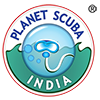Sutrapada (Gujarat), March 16, 2010: A whale shark was satellite-tagged for the first time in India, earlier this week, as part of research to understand behavior, ecological preferences and migration of this species.
The first set of data received this morning indicated that the tagged individual, a 6.5 m long male rescued off the Gujarat coast, had reached the coast of Maharashtra.
The satellite tag was deployed by a team of researchers under the Whale Shark Conservation Project, a joint venture of the Gujarat Forest Department and Wildlife Trust of India (WTI), and the Tata Chemicals Limited (TCL).
“This individual was caught in a fishing net offshore Sutrapada. As with other such individuals in the past, the local fishermen along with the Project team, freed the whale shark. There were several rescues last week, but this case was favourable for tagging as the tail was suitably exposed and the tag could be deployed efficiently and swiftly,” said Anita Karn, Deputy Conservator of Forests – Junagadh.
Satellite tagging is the latest development in the Whale Shark Conservation Project that had earlier initiated photo-identification, genetic analysis and visual tagging of whale sharks in India.
“Few years ago, while discussing with WTI & other partners on how the scientific study on whale sharks should go forward, satellite tagging was identified as an important tool,” said Alka Talwar, Head – Communities Development, TCL. “To now see the first tag in place and receive data from the tag is to know that all that we had planned and dreamt is now being realised. For us at Tata Chemicals, this is an achievement of another milestone. We hope that the data from this tag as well as many others that will subsequently be deployed will provide the world with new scientific data and information on this beautiful “Vhali” and help us ensure the long term survival of this species.”
“The spot tag was attached to the caudal fin of the fish” explains Manoj Matwal, Assistant Field Officer, WTI. “This tag is expected to last for about six months and give us data related to movement of the fish.”
The top priority for the team was to carry out the rescue and tagging operation with minimal possible disturbance and stress to the fish. WTI Veterinarian, Dr Minla Zangmu Lachungpa, who also collected tissue sample of the individual for genetic analysis, closely monitored the animal during the course of the operation.
The first signal from the animal was received early this morning, 68 hours after the tag was fixed on the animal. The signal was received 250 kms west of the coast of Mumbai, revealing that the fish has travelled southwards along the western coast.
Over the coming months, more tags are planned to be deployed and researchers from WTI will be closely following the movement patterns of these tagged whale sharks, giving unprecedented insight to the lives of this elusive species along the Indian coast.
The whale shark is the largest fish in the world and was once brutally killed across the shores of Gujarat for its liver oil used to water-proof boats. Made aware of the plight of the fish through the Whale Shark Campaign, the local fishermen began voluntary release of whale sharks accidentally caught in their nets. The fish was listed under Schedule I of the Indian Wildlife (Protection) Act, 1972 in 2001, according it with the highest level of protection in the country.
Since its inception in 2008, the Whale Shark Conservation Project has been working with the support of the fishing communities, involving them in the conservation of this largest fish in the world.


